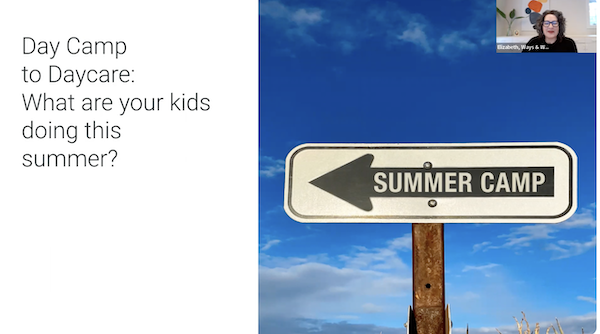
This was the third call Miles got from his dad while he was at work. “I was just thinking about that tackle box with my fishing gear. Do you know where that is?” Yes, Miles knew the tackle box was in his own garage since his dad gave it to him 4 years ago. Did his dad have plans to go fishing? “No, I was just thinking about where it ended up. I thought my neighbor may have borrowed it.” A few hours later his dad called asking if those new taxi services could pick him up for his urologist appointment. Miles reminded his dad that the urologist appointment wasn’t until next month. As much as he loves his dad, the regular daytime calls were affecting his ability to work.
Mile’s dad used to pack days full of activities and projects but was now seemingly uninterested in socializing or pursuing his hobbies. The result was a lot of time to think about where his tackle box was and worry over appointments weeks away. Miles had repeatedly tried to get his dad to engage in the men’s lunch club and model car projects he used to enjoy, but with no success. Miles felt puzzled and genuinely worried over his father’s wellbeing.
Reports warn against effect of loneliness
The experience of Miles’ father is common. Older adults in particular are finding themselves more isolated and bored than ever before. In fact, this is so prevalent that the US Surgeon General released the first ever Advisory on loneliness, isolation, and social connection. Dr. Murthy warns about the public health crisis that loneliness, isolation, and disconnection pose to the American public. Additionally, a report from the National Academies of Sciences, Engineering, and Medicine (NASEM) found that nearly one-fourth of adults 65 and older are considered to be socially isolated.
Social isolation increases dementia
Among older adults, chronic loneliness and social isolation can increase the risk of developing dementia by approximately 50%. Evidence reveals that social isolation and loneliness hinder good health, putting older adults at risk for high blood pressure, heart disease, obesity, a weakened immune system, anxiety, depression, cognitive decline, Alzheimer’s disease, and even death.
Factors contributing to social isolation
The cost is clear, but preventing social isolation is complex. The myriad of issues contributing to the isolation of older adults include:
- Hearing. Their hearing may be compromised, especially in noisy environments. It can be embarrassing to either not clearly understand what was said or have to ask for something to be repeated.
- Fear. They may genuinely be afraid of falling since they know how easily it could mean a broken bone. If they are feeling unsteady at all, walking in new environments may not feel safe to them.
- Incontinence. They may have lost some bladder control and/or need to make frequent bathroom trips and don’t want to call attention to such a highly personal issue.
- Transportation. They may not feel as comfortable driving (especially in the dark) or may not drive at all which may cause them to avoid inconveniencing anyone by having to drive them.
- Pain. Their body may hurt which can cause anyone to feel moody and out of sorts. It also may be physically hard or even painful to walk or sit in various uncomfortable seats.
- Ageism. Negative stereotypes and ageism can cause an older adult to want to avoid new situations and people who may not be patient with them or kind.
- Unwanted. They may feel like a “downer”, as though they aren’t nice/happy/fun enough to have around.
- Everyone is “new”. They may have lost their closest long time friends who may have moved away or passed away. It can feel hard to develop new friendships. We can all relate with that.
Some of these issues can be addressed through medications or assistive devices and some cannot. It’s a new landscape altogether— the old hobbies and activities no longer address their current confidence and situation.
Five “Great Day” Questions
Begin by identifying which of the factors above are contributing to their isolation. Next, ask the older adult if those factors play into their social decisions.
Use these five questions to brainstorm with an older adult about activities.
- What would be a “great” day for you? What would it include?
- On a scale of 1-10, how content are you with how you spend your time?
- What is one thing you’d like to regularly add to your calendar?
- What are some of the best things you’ve done recently?
- How many activities feel like the right number each day or week?
Additionally, AARP’s “Are You Affected by Social Isolation?” tool can help provide insights. It may be especially helpful if the older adult is likely to respond well or respect a questionnaire assessment from a well known source.
It’s possible that the older adult is content with their level of activity and social engagement. It may be your own (albeit well-meaning) desires for them that need an adjustment. It’s not easy to see someone you care about having a life that looks very different from how it used to look.
However, if they want to make a change, you can now work with them to create “great” days (as defined by them.) Part of the solution will include resolving or diminishing the contributing factors identified above.
Strategies to increase social engagement
Specific activities will depend on their abilities and interests. Start with these practical steps to create more “great days” for them.
- Set up easy-to-use technology, ideally with a prominent video screen. There are a number of options that are designed for older adults, like the GrandPad.
- Go with them (or set up a buddy) to accompany them to the first event, whatever it is. They may be much more proud to show you off than to show up by themselves. Once there, they will likely begin to develop connections.
- Schedule others (extended family or volunteers) to engage with the older adult regularly. One daughter sent calendar invites to her siblings. The older adult may be less likely to cancel or pass up an engagement with someone outside of their regular care circle.
- Create an account with a shuttle service or private taxi option like Uber or Lyft. Accompany them on the first few trips to help remove a barrier of the unknown.
- Affirm the older adult’s ability to make an impact by setting up meaningful volunteer or work engagements.
Sometimes a single activity or person can make a world of difference in the life of a lonely older adult.
The Ways & Wane Care Concierge team can compile a custom matrix of practical solutions to help solve social isolation for the older adult in your life.










